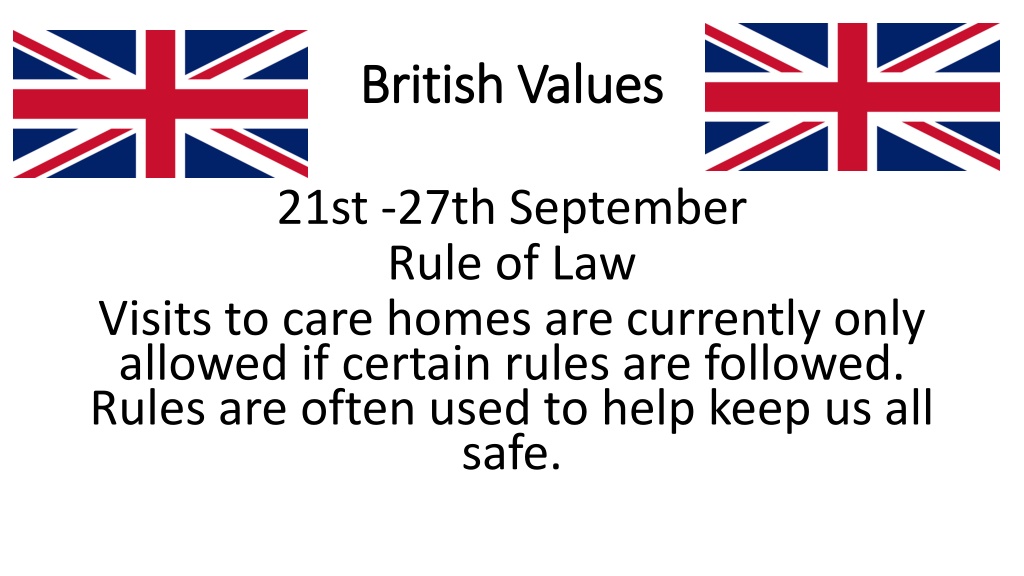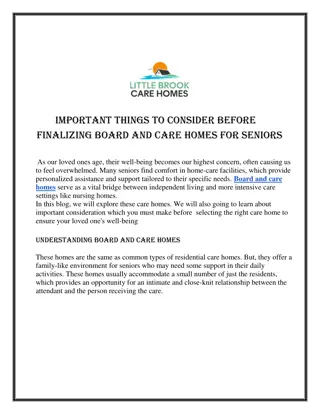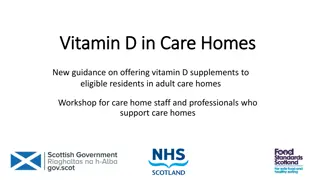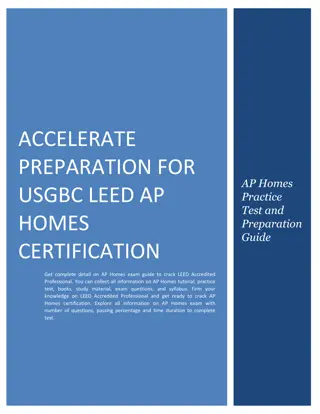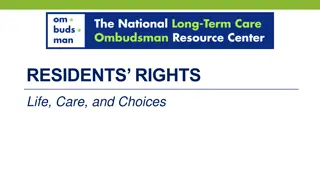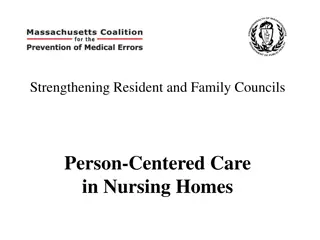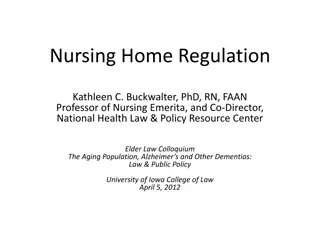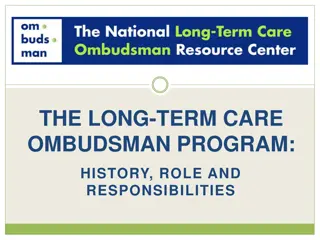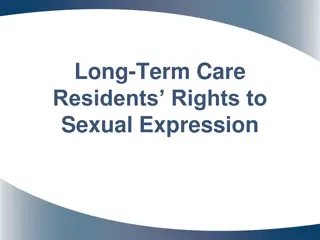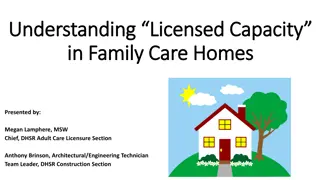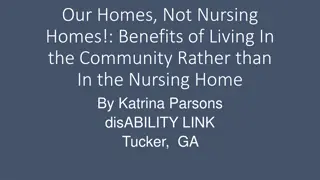Understanding Care Homes and Support for Residents
A charity is seeking a review of government guidance on care home visits in the UK, emphasizing the importance of following rules for safety and wellbeing. Care homes provide accommodation and care for individuals who may need assistance with daily activities. Activities and hobbies are crucial for residents' well-being, and care homes play a vital role in facilitating such engagements. Support and companionship are key aspects of life in care homes, ensuring residents lead fulfilling lives despite challenges they may face.
Uploaded on Oct 10, 2024 | 0 Views
Download Presentation

Please find below an Image/Link to download the presentation.
The content on the website is provided AS IS for your information and personal use only. It may not be sold, licensed, or shared on other websites without obtaining consent from the author. Download presentation by click this link. If you encounter any issues during the download, it is possible that the publisher has removed the file from their server.
E N D
Presentation Transcript
British Values British Values 21st -27th September Rule of Law Visits to care homes are currently only allowed if certain rules are followed. Rules are often used to help keep us all safe.
What is in the news? What is in the news? A charity is seeking a review of the government guidance on care home visits. John's Campaign says many care homes in England are still refusing regular face-to-face visits, despite changes at the end of July that outlined new guidance for visitors.
Key Stage 1 Key Stage 1- -What is a care home? What do you think it means? What do you care about? Why? Is there anything you care for? Who or what? If you care about someone or something, you feel concern and affection and that they are or it is important. If you care for someone, you look after them and provide them with the things they need.
Key Stage 1-Care home A care home is a place that provides accommodation and care for people who may not be able to look after themselves. I work in a care home and help the residents with their daily lives. Some of the things I do include helping people wash and dress, providing any medication and helping with mealtimes. I also help with any social and physical activities and I chat and listen and provide friendship. Lauren Here is a room used for residents in a care home to sit. They might chat to others in the home, read, draw or watch television. Some people having their meal in a care home. A lady sharing a book with her carer. Do you know anybody who lives in a care home? Have you ever visited a care home?
Key Stage 1 Key Stage 1- - Care homes help their residents to live their everyday lives, which includes any hobbies or activites they may enjoy doing. Some care homes provide art classes, quizzes or may invite a guest speaker. Do you think it is important for care homes to provide these activities? Think about any hobbies or activities you enjoy doing now. Create a list. Do you think people living in a care home would enjoy them?
Key Stage 2 Key Stage 2- -What are the different ways that What are the different ways that care homes can support their residents? care homes can support their residents? Care homes provide accommodation and care for people who need help and support to live their everyday lives. Think about your life. Can you describe a typical day? E.g. get up, get dressed, have breakfast, go to school, play football, etc. Some people cannot do all of these things and need some help. They may have a carer, who visits them in their home to help, or they may move to live in a care home.
Key Stage 2 Key Stage 2 Discuss some of the ways care homes can support their residents such as helping someone dress and wash, providing meals, helping with any medicine needed etc. Can you think of any other ways they can help?
Key Stage 1 Key Stage 1 Follow Up Work Follow Up Work Write a letter or draw a picture to send to someone in a care home. You could ask the children if they know somebody they could send it to or, as a class, send them to a local care home (check they are happy to receive them first). Include: Introduce yourself and explain why you are writing Share any hobbies or interests you have Do you have any questions you would like to ask them? Send your letters and pictures off. You may get a response!
Key Stage 2 Key Stage 2 Follow Up Work Follow Up Work One of the activities provided by Ideal Carehomes is Reminiscing . This is where people remember and discuss the past. Can you remember about their first day at school. What did you wear? How did you feel? Who was there? What did you do? Share their memories. Has school changed over time?
Reflection Reflection Some people need to live in a care home. There are many different ways care homes can support their residents, meaning they get the help they need, are able to socialise and have fun and can maintain their independence, if they choose to.
This Weeks Useful Vocabulary This Week s Useful Vocabulary Alternative available as another possibility or choice. Innovative something that is new and original. Refuse show you are not willing to do something or deliberately do not do it. Residential a residential institution is one where people live, whilst they are studying or being cared for. Reunited meet again after having being separated for some time. Seeking attempting to find something.
